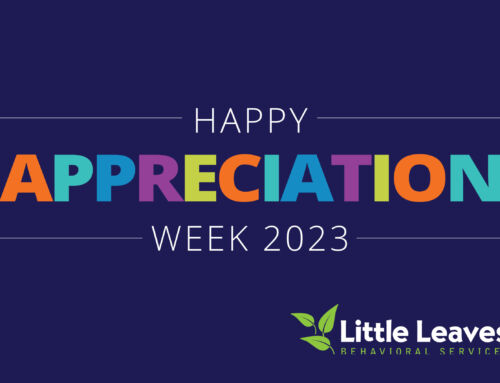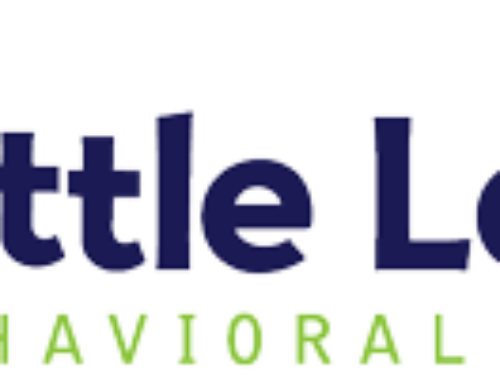Your child’s doctor has just recommended Applied Behavior Analysis for your son or daughter. What now? The field of behavior analysis has seen the number of ABA practitioners grow exponentially—but quantity doesn’t always translate to quality. And for your child with Autism Spectrum Disorder, a quality ABA provider is of utmost importance. With so many choices, parents need to keep in mind that not all ABA providers are created equal.
What Is Applied Behavior Analysis?
Let’s start from the top. If you’re not familiar with ABA, or Applied Behavior Analysis, it’s simply the science of behavior. Essentially the process for learning and changing behaviors. Behavior analysts use evidence based methods and principles, such as reinforcement, to change behavior for the better. ABA is designed to help people of all ages with a number of disabilities to manage their behaviors to better function in social settings such as schools, places of employment, and others. Depending on your child’s behaviors, an analyst may choose to increase certain behaviors while decreasing others.
ABA is considered an “evidence-based” treatment that’s something of a gold standard for autism. Evidence based means that ABA has passed scientific tests of its quality and effectiveness. ABA has been endorsed by the American Academy of Pediatrics, National Academies of Science, and the Surgeon General of the United States because of its proven effectiveness. ABA, however, is not an overnight solution. It takes plenty of hard work from both children and parents, an effort than can span years. But the rewards are worth it.
Optimal progress for children with autism comes through high-intensity, comprehensive ABA treatment. What does that mean?
- “High intensity” refers to both the number of hours and the number of learning opportunities provided within those hours.
- A “comprehensive” treatment is an ABA treatment program that targets skills and deficits across multiple areas.
- Conversely, a “focused” treatment narrows the treatment plan to a limited number of behavioral targets.
Determining How Much Time Your Child Needs
During your conversations with your Board-Certified Behavior Analyst (BCBA), it’s critical to be open and honest about what is best for your child. Because all children are different, the number of hours recommended will vary on a case-by-case basis. Your BCBA will make recommendations based on what research says will drive the best outcome for your child.
ABA generally involves breaking skills down into smaller parts and teaching them by using reinforcement. And behaviors are generally taught in developmental sequence. So, remember…this is a process that requires time and patience.
A Typical ABA Program
It’s important to remember that ABA is never one-size-fits-all. Your child’s ABA program will most likely vary from another child’s. Every child is unique, with his or her own sets of challenges and strengths, so your ABA plan will differ based on those attributes. It is safe to say, however, that your child’s therapy may include discrete trial instruction/teaching (DTI/DTT), natural environment teaching (NET), or incidental teaching. Programs can also be center-based, home-based, or community-based. Your provider should review the program with you before your child begins.
Prior to beginning your child’s plan, many types of assessment methods may (and should) be used to help determine the type of program is needed as well as the specifics involved in creating it. These methods include a structured parent interview as well as an evidence-based assessment such as the VB-MAPP or ABLLS.
A common question that arises during ABA programs is, “how do I know if my child is making progress?” Throughout therapy, data will be collected, reviewed frequently, and shared (ideally on a daily basis by technicians who work with your child) so you’re always aware of your child’s progression throughout the program. As your son or daughter shows improvement, goals and programs should be consistently updated to reflect their mastery of skills.
ABA therapy doesn’t fall squarely on the child’s shoulders, however. As parents, you are a critical part of the process. As such, parent education and caregiver training are essential components of ABA therapy that should be offered at least once per month. Your child’s provider should outline what this looks like for your family and prepare individual goals for parent education sessions.
Who Will Be a Part of My Child’s ABA Team?
A BCBA with expertise in your child’s behaviors will oversee your case, which will be one of anywhere between six and 16 clients that comprise a BCBA’s caseload at any given time. As part of your child’s ABA team, your BCBA will work closely with your family to better understand the child’s needs, determine the appropriate plan of care, and develop programs to fit that plan.
As far as who will be working with your child on a daily basis, this will include a team of paraprofessionals—better known as behavior therapists or technicians. These skilled technicians may have a Registered Behavior Technician (RBT) credential (this credential is not required by most insurance companies), which means:
- They have at least 40 hours of training.
- They were vetted through a background check.
- They passed an in-person competency assessment.
- They passed a written examination.
Your child’s therapists receive specialized training that allows them to work directly with him or her. The training is tailored to the individual goals of your child’s program, so he or she is getting the personalized attention necessary for behavioral progress. Your child’s therapists should also be supervised 1-2 hours per every 10 hours by the BCBA to ensure the plan is being executed properly and that your child is progressing at the right pace.
Don’t forget—you’re an integral part of your child’s ABA team, so your BCBA should arrange for you to observe a therapy session at least once a month to ensure that the program is being implemented as it was designed and that your child is getting what he or she needs from it.
About Little Leaves
Little Leaves is an organization dedicated to helping people with social, communication, and behavioral challenges grow and succeed so they can participate as fully as possible in their families and communities. Using evidenced-based practices based on the principles of ABA, our professionals partner with each family to develop and implement an individualized therapeutic plan. We also help families coordinate the logistics of therapy so that they can focus their time on what really matters—caring for their children.
We would welcome the opportunity to help your child at Little Leaves. To learn more, please contact us here.



